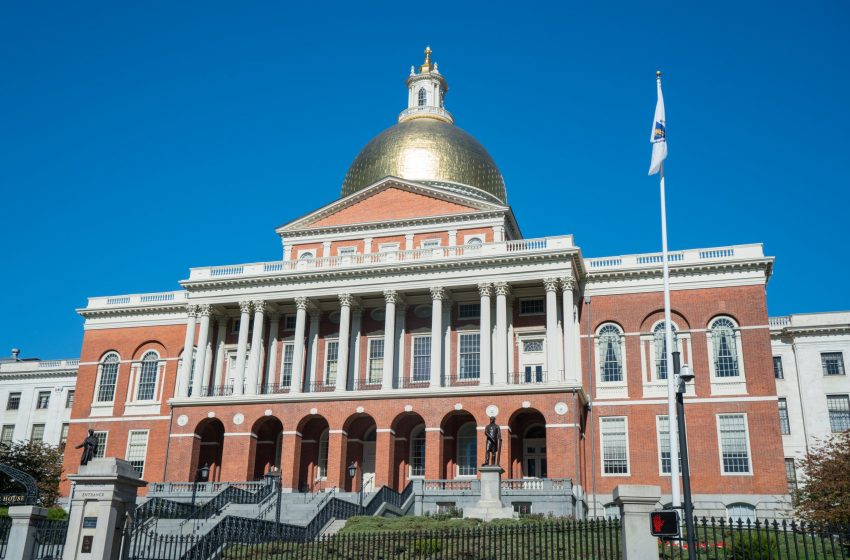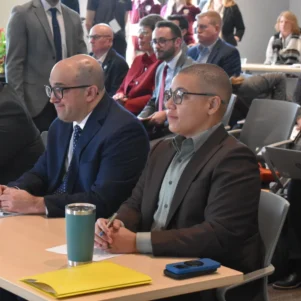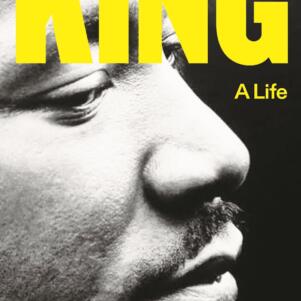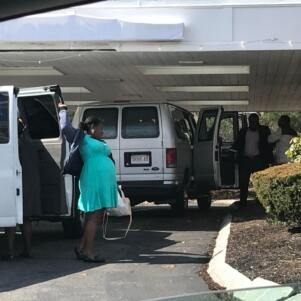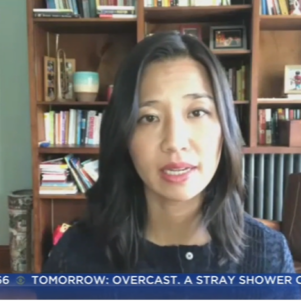Boston’s top cop airs concerns about ride companies
By State House News Service | September 16, 2015, 7:43 EDT
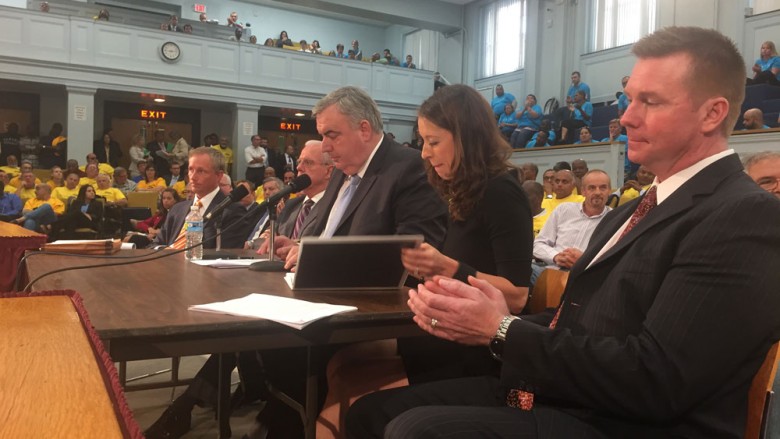 Uber’s panel before the Financial Services Committee included (left to right): Brad Nail, Uber insurance counsel; former Congressman Tony Coelho; former Boston Police Commissioner Ed Davis; Uber East Coast General Manager Meghan Joyce; and Bon Idziak, the government relations chief for Uber’s third-party background investigations firm Checkr. [Photo: Andy Metzger/SHNS]
Uber’s panel before the Financial Services Committee included (left to right): Brad Nail, Uber insurance counsel; former Congressman Tony Coelho; former Boston Police Commissioner Ed Davis; Uber East Coast General Manager Meghan Joyce; and Bon Idziak, the government relations chief for Uber’s third-party background investigations firm Checkr. [Photo: Andy Metzger/SHNS] Written by Andy Metzger
STATE HOUSE — While Boston Police Commissioner William Evans said he is in the dark about Uber’s background check system, his predecessor — now an adviser to the ride-hailing company — said Tuesday he had met personally with the background check teams.
“I’ve learned a lot,” Ed Davis, the former commissioner, told the Committee on Financial Services, which is weighing proposals to regulate transportation network companies, such as Uber and Lyft.
Among the issues before lawmakers are the background checks that would be conducted on drivers, who should perform them and whether they should include fingerprinting.
“I don’t know who’s doing their background checks,” Evans told the lawmakers. Evans said the city is in the process of fingerprinting taxi drivers, whose ability to pick up fares on city streets is predicated on whether their cab has a pricy taxi medallion.
Bon Idziak, the government relations chief for Uber’s third-party background investigations firm Checkr, said while “there hasn’t been an introduction made” with the commissioner he would be happy to speak to him.
Speaking to the News Service after appearing before the committee, Idziak described an extensive process checking aliases and local courthouses as well as running checks through sex offender and potential terrorist databases and examination of the individual’s driving record.
Idziak described the state’s own criminal offender record information check as “supplemental” and said that while fingerprints can successfully identify someone attempting to shield their identity, they are not the “gold standard,” and name checks are “widely accepted across industries.”
Davis said he continues to put the safety of Bostonians first and, noting that his father and uncle both drove taxis, Davis said Uber has brought “transparency and accountability to transportation.”
Though he described the use of biometrics like fingerprinting the “gold standard” for background checks, Davis said putting more than 10,000 drivers through such screenings would create logistical problems. “You’re looking at years before you could physically have those fingerprints done,” he said.
Uber East Coast General Manager Meghan Joyce said the company favors what she termed “common sense regulation” of the type that she says passed in more than 20 states and are included in bills proposed by Gov. Charlie Baker (H 3351) and Rep. Smitty Pignatelli (H 931).
Transportation network companies whose drivers can be hailed via smartphone have upended private travel and upset the heavily regulated taxi industry. The two sides wore opposing T shirts – yellow for taxis and blue and pink for Uber and Lyft – before the Financial Services Committee on Tuesday.
Offering a more robust regulatory regime for the ride-hailing services, two Boston lawmakers insisted their aim is not to push the companies out of the state.
Rep. Michael Moran, a Brighton Democrat, and Sen. Linda Dorcena Forry, a Dorchester Democrat, proposed legislation that requires fingerprint checks for drivers, limits when surge-pricing can be used during emergencies and requires disclosure of the methodology the companies use to ratchet up the cost of the ride. Forry said, “We don’t prohibit surge pricing.”
“They would have you believe that they are technology companies … This is their justification for being above regulation,” Forry told the committee on Tuesday. She said, “Even a multi-million-dollar campaign cannot escape the logic that a company that transports you from point A to point B is a transportation company.”
Uber representatives pitched their technology platform as a way to provide good flexible work where drivers receive 75 to 80 percent of fares, and where passengers are able to hail rides to and from a wider geographic area, and with features to ease access to those with disabilities.
“Henry Ford invented the car in 1906, and people have been getting paid to drive people around since 1906,” said Scott Solombrino, president and CEO of Boston Coach. Solombrino said his livery company actually employs its drivers and asked the state to impose a finger-printing requirement on his industry. He said, “We did it the old fashioned way. We followed the law.”
Joyce said the bill filed by Moran and Forry contained a number of “poison pills” for the ride-hailing industry, including fingerprinting, requiring drivers to procure their own commercial insurance, requiring smartphones to be inspected by a government agency, restrictions on surge pricing and a ban on the use of any cars over five years old.
Joyce said those provisions are intended to “create such burdens on the drivers who operate on this platform that the vast majority would never be able to get over these hurdles.”
Moran took issue with how Uber had treated him, describing the company as unwilling to compromise, and he said the company put an ad on the Washington Post’s website accusing Moran of “attacking” the company.
“It has to be done on their terms and in their way,” Moran said. He said, “This should give us all some pause, and make us wonder why this company would go to such lengths to protect their interests.”
Moran was cheered by the taxi industry backers in the audience, who booed the former Boston police commissioner.
Forry and Moran said there is significant overlap between their bill and the one proposed by Baker, though theirs is more involved.
Secretary of Public Safety and Security Daniel Bennett said a double-layer of background checks performed by the companies and the Department of Public Utilities, as proposed in the governor’s bill, would sufficiently protect against dangerous individuals taking the wheel.
On the topic of surge-pricing, Department of Public Utilities Chairwoman Angela O’Connor noted that hotel prices can fluctuate with demand and said her department – which would become Uber’s regulator under the governor’s legislation – does not dictate prices for private bus companies.
“What we want to make sure is there’s transparency around this so the consumer can have some predictability,” O’Connor told the legislative panel. O’Connor said the state would have a “roster” of transportation network company drivers, which Bennett said would be a useful law enforcement asset.
Joyce described Uber innovations to facilitate drivers with disabilities – such as deaf drivers who communicate via text – and said the company has introduced a service where passengers can share a trip in the same direction, reducing the cost and the exhaust.
“Uber is aggressively identifying our community and saying we want you to use us,” said former Congressman Tony Coelho, who has epilepsy, according to the California Democrat’s historical U.S. House web page. Saying he doesn’t work for Uber, Coelho said, “I don’t know of another company that does that, and that’s why I’m here on my own dime here.”
Evans described his own experience dealing with the public perception that black-painted motor vehicles might be someone’s Uber ride.
“I know it’s happened to me. It’s happened to a lot of people,” Evans told the committee. He said, “No one really knows who’s Uber and who’s not.”
After his testimony, Evans told reporters that he had been idling in his unmarked black Ford Explorer outside of his house when someone mistook him for a hired ride. He said, “Someone knocked on the door, and I’m like, ‘I’m not an Uber driver.'”
He said it had happened to his drivers, too outside his house. Baker’s bill would require Uber and Lyft cars to be marked.
Rep. John Lawn, a Watertown Democrat, raised the idea of Uber drivers being required to use specialty plates.
While Uber representatives said the company services areas of the city historically avoided by taxi companies, the company can also add ride service to more remote areas.
“This is a service that benefits my communities,” which don’t have taxis or liveries, said Rep. James Cantwell, a Marshfield Democrat who also represents much of Scituate.
Patricia Bellfield, of Roslindale, who said she has started up her own ride-hailing service called iMoto in the vein of Uber and Lyft, said she is worried about her ability to pay for the $1 million insurance coverage mandated under Baker’s plan.
“We primarily service the inner-city areas,” Bellfield told the News Service. Hoping for some state assistance with a new insurance requirement, Bellfield said, “Emerging companies would not be able to compete, and then you’d have what’s called a monopoly.”
Uber officials also told lawmakers that they were willing to have their drivers pay commercial toll rates on roads and bridges. Currently, riders are charged the commercial toll price also paid by cabs, but the drivers pay lower personal vehicle rates. Uber said it is working with the Department of Transportation to access E-ZPass transponders that would charge commercial tolls.
Committee co-chair Rep. Aaron Michlewitz thanked those who attended the packed hearing as he introduced a livery industry panel at 5:20 p.m. “I’d like to keep that rolling as we go forward,” he said.
Copyright State House News Service

